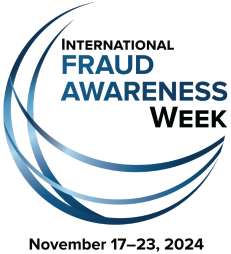

The future of fraud is shaped by rapidly evolving technologies, global interconnectedness, and increasingly sophisticated cybercriminal tactics. Here’s a glimpse into key trends and challenges that are likely to define the future of fraud:
- Increased Use of AI by Fraudsters
- How It’s Evolving: Cybercriminals are leveraging AI to create advanced phishing schemes, deepfake videos, and voice mimicry to deceive individuals and organizations.
- Future Concerns: AI-driven fraud will become harder to detect as synthetic identities and realistic impersonations improve.
- Defenses: Enhanced AI-powered fraud detection systems, anomaly detection, and behavioral biometrics will play crucial roles.
- Rise in Cryptocurrency Fraud
- How It’s Evolving: As cryptocurrencies become mainstream, scams such as rug pulls, Ponzi schemes, and fake ICOs are becoming more prevalent.
- Future Concerns: Decentralized finance (DeFi) platforms may become targets for large-scale fraud due to their lack of regulation.
- Defenses: Greater regulatory oversight, education on secure wallet practices, and advanced blockchain analytics tools.
- Internet of Things (IoT) and Smart Device Vulnerabilities
- How It’s Evolving: With billions of connected devices, fraudsters may exploit vulnerabilities in smart home devices, wearables, and cars.
- Future Concerns: Fraud through IoT devices could lead to identity theft, unauthorized access, and surveillance.
- Defenses: Stronger encryption, secure firmware updates, and user education on device security.
- Globalization of Fraud
- How It’s Evolving: Fraudsters operate across borders, exploiting differences in regulations and enforcement between countries.
- Future Concerns: International scams, such as cross-border payment fraud, will increase as global digital transactions grow.
- Defenses: Enhanced international cooperation and standardized fraud prevention regulations.
- Social Engineering on Steroids
- How It’s Evolving: Cybercriminals are using data from social media and breached databases to craft highly targeted scams.
- Future Concerns: Hyper-personalized attacks, such as spear phishing, will increase in sophistication.
- Defenses: Continuous employee training, multi-factor authentication, and zero-trust policies.
- Automation of Fraud at Scale
- How It’s Evolving: Bots and automated tools enable fraudsters to carry out attacks (e.g., credential stuffing, fake reviews) at unprecedented speeds and volumes.
- Future Concerns: Businesses face challenges in differentiating between legitimate and automated fraudulent activities.
- Defenses: Bot detection systems and machine learning models to analyze patterns in large datasets.
- Biometric Spoofing
- How It’s Evolving: As biometrics like fingerprints and facial recognition become common, fraudsters will find ways to spoof them using synthetic models or deepfakes.
- Future Concerns: Compromised biometric data could lead to irreversible identity theft.
- Defenses: Multi-layered authentication and anti-spoofing technologies.
- Financial Ecosystem Disruption
- How It’s Evolving: Fraudsters exploit weaknesses in new financial ecosystems like peer-to-peer payments, buy-now-pay-later services, and open banking.
- Future Concerns: Exploitation of APIs and vulnerabilities in fintech platforms could result in significant financial losses.
- Defenses: Stronger API security and adaptive risk-based authentication.
- Cybercrime-as-a-Service (CaaS)
- How It’s Evolving: Fraudsters are offering tools, stolen data, and expertise as services, making it easier for non-technical criminals to commit fraud.
- Future Concerns: The barrier to entry for committing fraud is dramatically lowering.
- Defenses: Proactive monitoring of dark web marketplaces and takedown of fraudulent services.
- Post-Quantum Cryptography Challenges
- How It’s Evolving: Quantum computing has the potential to break traditional encryption methods, making current data protection strategies obsolete.
- Future Concerns: Encrypted data stolen today could be decrypted in the future when quantum computers become more powerful.
- Defenses: Adoption of quantum-resistant encryption standards.
What Can Be Done?
To stay ahead, individuals, organizations, and governments must:
- Invest in Advanced Technologies: AI and machine learning will be essential in fraud detection and prevention.
- Enhance Collaboration: Share intelligence across industries and borders.
- Strengthen Regulations: Develop and enforce stricter policies for emerging technologies.
- Educate Users: Continuous awareness campaigns to empower individuals and businesses.
By anticipating these trends, we can develop strategies to mitigate risks and protect against the fraud landscape of tomorrow.
What to do if you suspect a scam
At Core Bank, the safety and security of your assets are always our highest priority, so we provide you with the tools and resources you need to stay up to date in protecting your identity and assets.
- If someone pressures you, confirm that the urgency is necessary.
- Think it through. Does the request make sense? And if it sounds too good to be true, it probably is.
- Consult with a friend or family member you trust, even if the scammer tells you not to.
- Go directly to the company or bank they claim to be calling from.
- Call the police or report fraud.
- Read more about Cybersecurity at Core Bank.
- Watch some of Core Bank Reels: